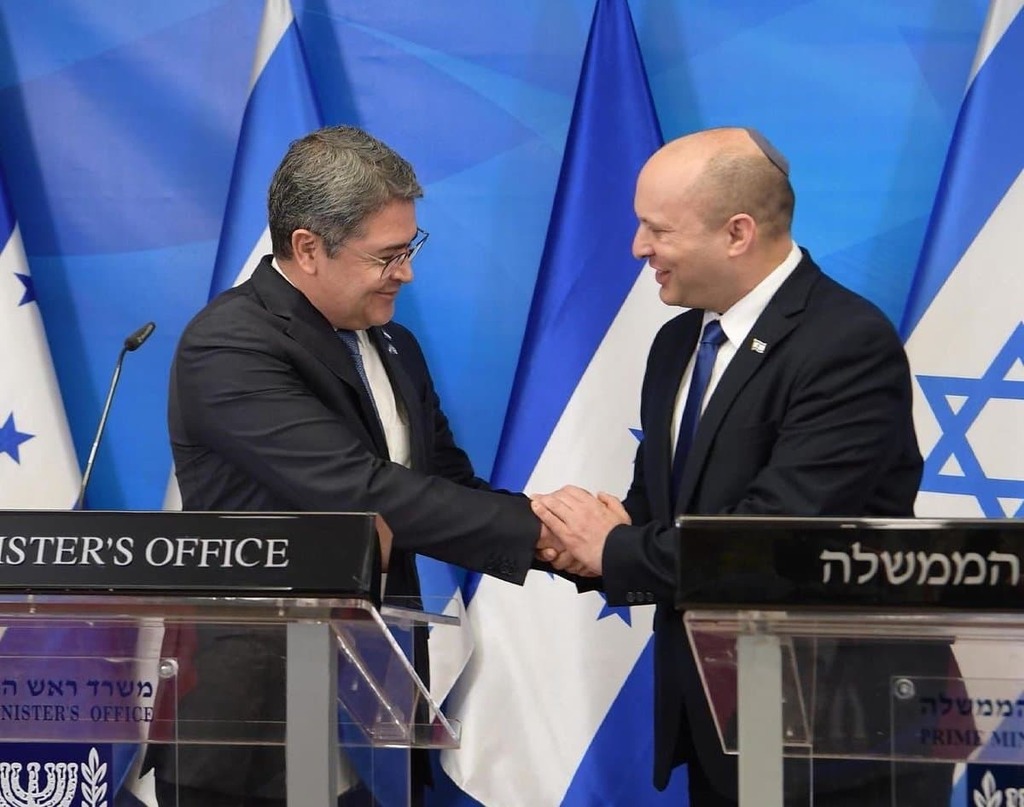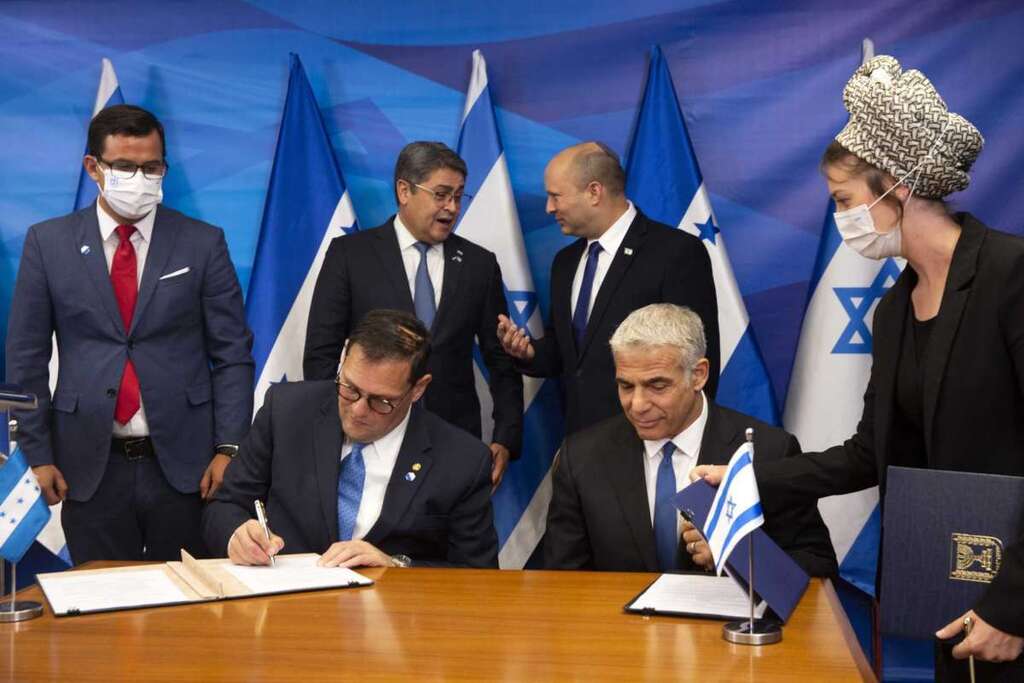Getting your Trinity Audio player ready...
Honduras on Thursday opened its embassy in contested Jerusalem, becoming the fourth country to follow the U.S. move under former president Donald Trump to relocate its chief diplomatic mission in Israel from Tel Aviv.
To mark the occasion, Honduran President Juan Orlando Hernandez and Prime Minister Naftali Bennett signed several bilateral cooperation agreements in Jerusalem on Thursday.
2 View gallery


Honduran President Juan Orlando Hernandez meets with Prime Minister Naftali Bennett at the Prime Minister's Office in Jerusalem
(Photo: GPO)
Israel views the entire city as its unified capital, while the Palestinians want East Jerusalem as the capital of their future state. The rival claims were at the heart of the unrest in April and May that eventually ignited an 11-day war in the Gaza Strip.
The U.S. inaugurated its embassy in the city in 2018, and Guatemala, Kosovo and Honduras followed suit. Paraguay opened its embassy in Jerusalem in 2018, but then reversed course months later. Most countries maintain embassies in Tel Aviv because of Jerusalem's disputed status — one of the thorniest issues in the Mideast conflict.
Bennett said that the opening of the Honduran Embassy in Jerusalem, and the planned reopening of the Israeli Embassy in Tegucigalpa, was “another demonstration of the deep friendship and deep connection” between the two countries. Israel previously had an embassy in Honduras until the 1990s.
2 View gallery


Prime Minister Bennett, back right, and Honduran President Hernandez, speak as Foreign Minister Yair Lapid, front second right, and Honduran Foreign Minister Lisandro Rosales sign agreements between their two countries at the Prime Minister's Office, in Jerusalem
(Photo: AP)
He also thanked Hernandez for his international backing of Israel.
"Under your leadership, Honduras consistently stands by Israel in international institutions when it is not always popular, and sometimes it also involves paying a price," Bennett said. "This is a testimony to our friendship — your willingness to take action. I want to thank you and the public in Honduras for this support."
Hernandez, who visited the holy city in 2019, had pledged to move his country’s embassy to Jerusalem. Then-prime minister Benjamin Netanyahu in turn pledged to reopen the Tegucigalpa embassy.
The Trump administration’s decision to fulfill a longstanding U.S. promise and move the embassy to Jerusalem, following Washington’s recognition that the city was Israel’s capital, flew in the face of international consensus and enraged the Palestinians.

